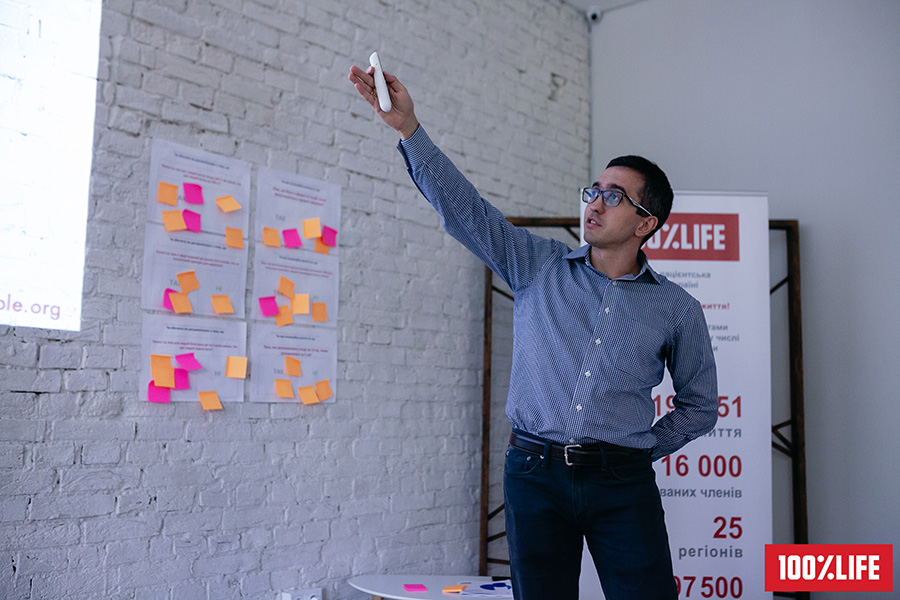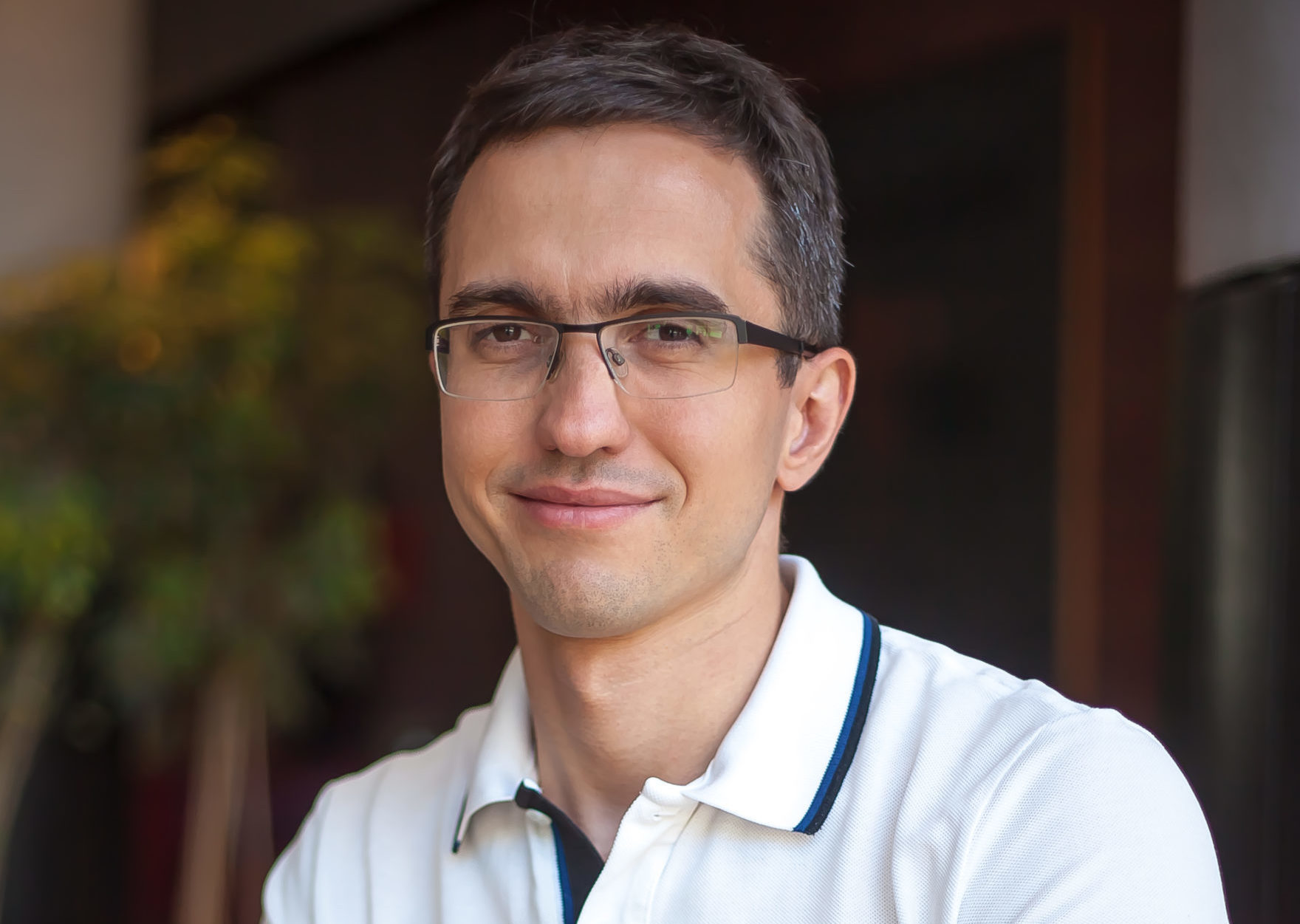
Sergey Kondratyuk
Sergey is Make Medicines Affordable’s campaign manager. Here he describes how a personal issue turned into a global fight when a family member couldn’t access treatment. He provides an insight into what being a treatment activist means to him.
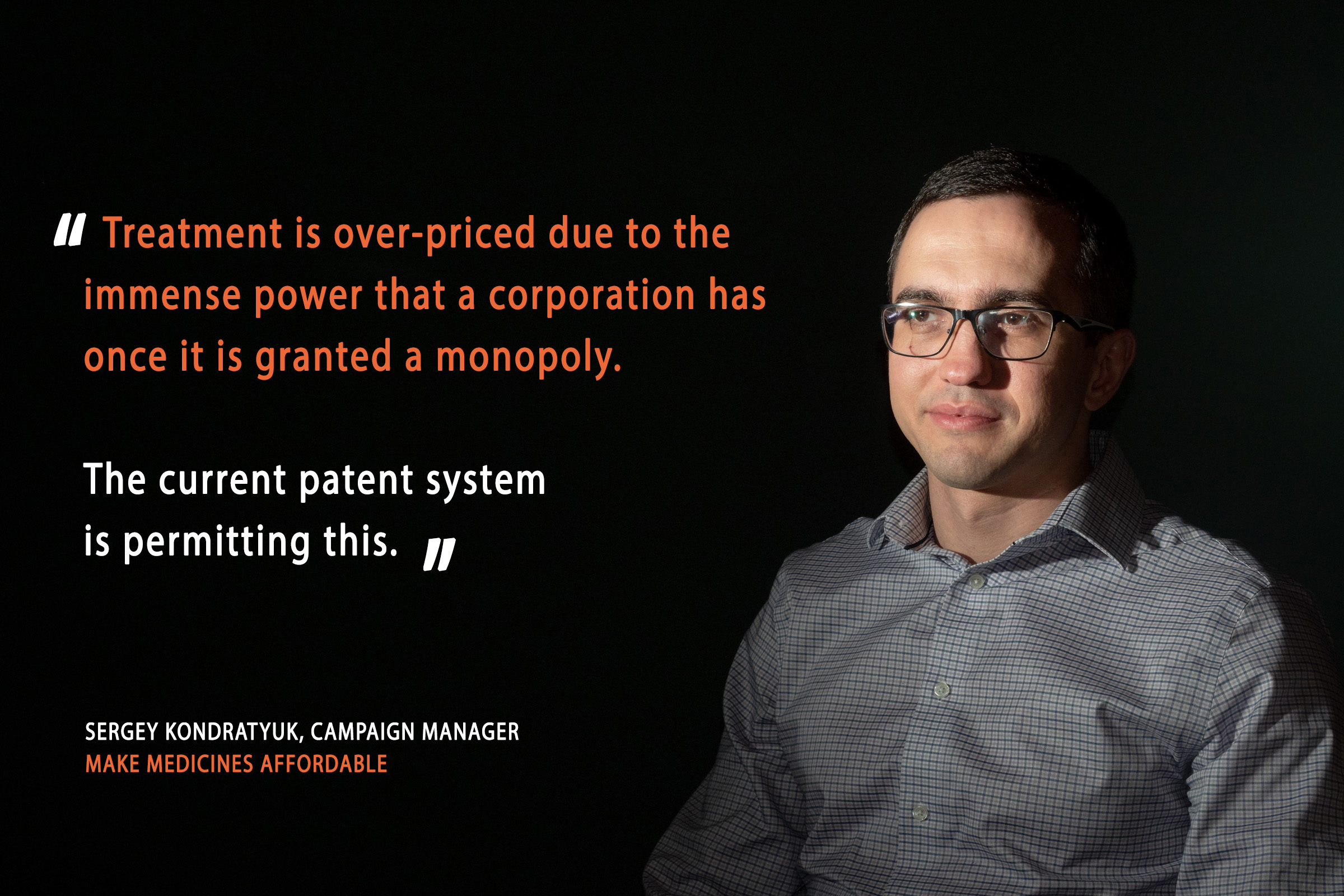
What got you interested in treatment activism to start with?
Someone in my family was struggling to access life-saving medicines. That was back in 2008. From that experience I became more aware of the scale of the issue, both in Ukraine and globally, and I became motivated to work on access to treatment.
It was a coincidence that I happened to be a lawyer, already with a basic knowledge of intellectual property (IP), and at the time I was working for an NGO procuring ARVs with Global Fund support.
While I was in a good position to start focusing on these issues, anyone who has the drive can understand IP issues and become efficient in challenging the barriers that prevent people accessing life-saving treatment.
Can you tell us a bit more about your professional journey?
After 4 years practice of commercial law, I joined 100% Life (formerly the All-Ukrainian Network of People Living with HIV/AIDS). It was through this work that I became aware of IP barriers to access. Trying to source optimal treatment at an affordable price makes you aware of the real-world impact of corporate greed very quickly – and so my work started to cross-over with the advocacy team.
Trying to source optimal treatment at an affordable price makes you aware of the real-world impact of corporate greed very quickly.
By 2013 I was working full-time on advocacy. In 2015 the Make Medicines Affordable (MMA) campaign launched and I was lucky to be in the Ukrainian national team. Our team was very young and inexperienced in IP work in comparison to the very capable advocates from Argentina, Brazil and Thailand. It was very useful for me to learn from them and ITPC with I-MAK at that time.
What does a ‘typical day’ look like?
There is no such thing as a typical day!
I can be marching with fellow activists outside a court in Ukraine, or sitting down with campaign colleagues from Guatemala to help them understand patent law and how to challenge unmerited patent applications.
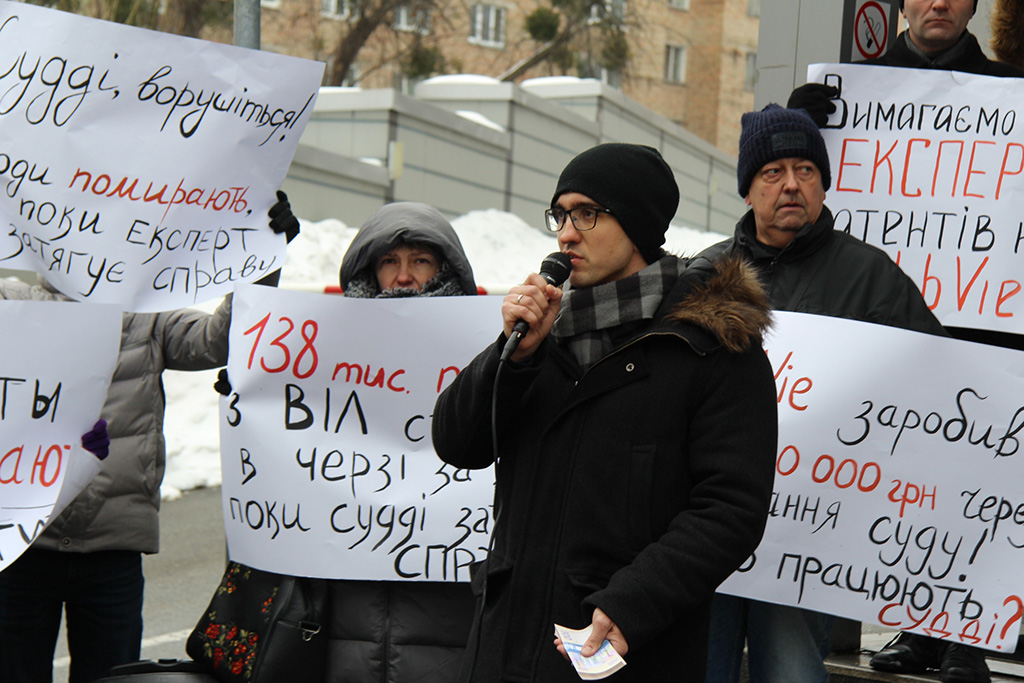
As MMA’s campaign manager my main roles and responsibilities are to ensure that country partners have all the resources they need to efficiently challenge medicine monopolies in their countries and inspire more and more activists and goverment officials to work on these issues.
Examples of recent initiatives include:
- Launching the Patent Opposition Academy to support more people to use the TRIPS flexibilities in Latin American countries.
- We called on 12 countries to issue compulsory licenses on HIV drug, dolutegravir (DTG), during the 10th IAS Conference on HIV Science in Mexico. As the World Health Organization (WHO) recently recommended DTG as preferred HIV treatment option, we are very much focused on the affordability of this drug, as in many upper middle income countries the price remains unaffordable for governments to expand treatment. Upper-middle income countries in Latin America, Eastern Europe and Central Asia are particularly affected by companies’ pricing decisions.
- We put a significant focus on sharing knowledge so that countries and regions can replicate success. A recent example of this is sharing experiences with ‘least-developed countries’ (LDCs) in the Asia Pacific region, as there are specific agreements and strategies that can prevent LDCs from allowing monopolies on medicines.
- Preventing and challenging patents is a core part of our work. One recent example is our partner in Argentina filing an opposition on Gilead’s patent application for the combination, sofosbuvir + velpatasvir. This is the third opposition filed by FGEP on Hepatitis C medicines. Previous oppositions filed have prevented monopolies and significantly reduced the price of treatment.
Why is ‘treatment activism’ so important?
Treatment is over-priced due to the immense power that a corporation has once it is granted a monopoly.
Treatment is over-priced due to the immense power that a corporation has once it is granted a monopoly – to exclude generic competition and set high prices arbitrarily. The current patent system is permitting companies to do this.
It means people are dying, not because the drug doesn’t exist, but because of greed.
This is not acceptable and can be dealt with. For example, governments have the power to issue compulsory licenses, or examine patent applications according to the highest standards existing to prevent unmerited patents being granted in the first place.
Activists can prepare and file patent oppositions. This may appear a daunting task, but it is easier to do than it may first seem, and MMA is equipping civil society around the world to be able do this.
We’re also focused on equity. Not all treatment is equal, yet everyone deserves optimal treatment. Most countries have committed to respect right to health, but this right is being violated by private companies abusing the patent system, for example, by applying for secondary patents on medicines.
The right to health is being violated by private companies.
So far in your career fighting for access to affordable, optimal treatment, what has been your greatest success?
The successful pre-grant patent opposition on sofosbuvir (SOF) in Ukraine was probably the biggest achievement on access that I have contributed to. As a result of it the price for SOF in Ukraine dropped more than 20 times. I am very grateful to 100% Life, IRF Ukraine and I-MAK. This was the first patent opposition made by an NGO in Ukraine, and their input made it happen.
And what remains your biggest frustration?
I’m frustrated that many international donors working on HIV treatment still pay so little attention to the issue of pricing and monopolies, and yet it is one of the most significant obstacles to ensuring all people living with HIV, TB, Hepatitis C and other diseases receive treatment.
What do you think is required in order to achieve a sustainable, affordable response to HIV, TB, and Hep C?
It is hard to answer definitively, however, among the many ingredients there must be: a competitive market of multiple manufacturers; good health financing from domestic sources; strong public health institutions; and strong community organizations demanding the right response to these epidemics.
How can people who are interested get involved in the fight to make medicines affordable?
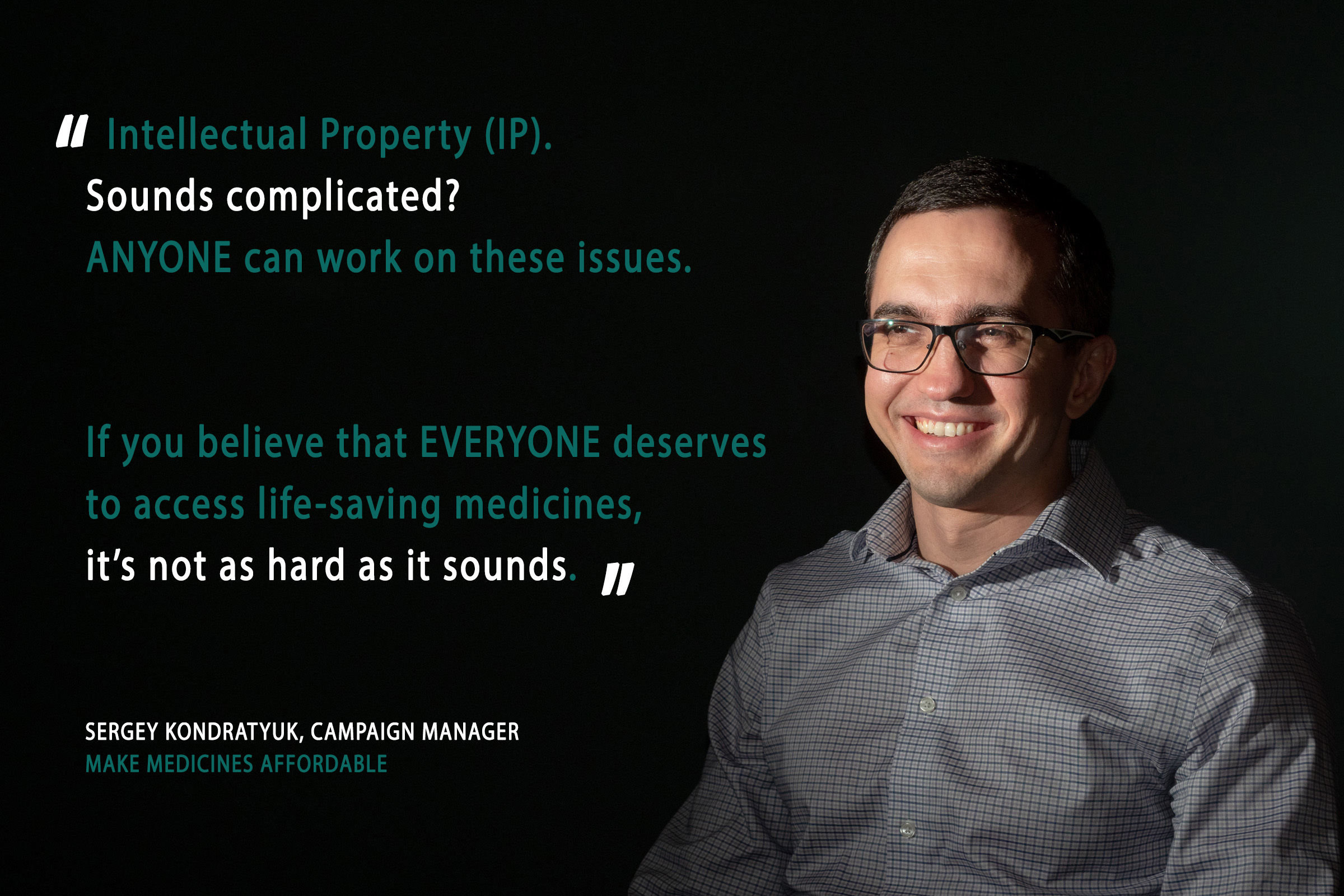
It’s an issue that is relevant to everyone. Civil society organizations working on health or human rights are especially well-placed to take up this issue, as well as young scientists and pharmacists, whatever your starting point, social justice issues are all interlinked.
Practical ways to support are:
- Connect with organizations working on IP and access to medicines in your country.
- The media can help by reporting on these issues. High profile pressure can help governments to do the right thing.
- Join the Patent Opposition Academy, which ITPC has launched initially in four countries. The deadline closes 9 September. Find all details here.

